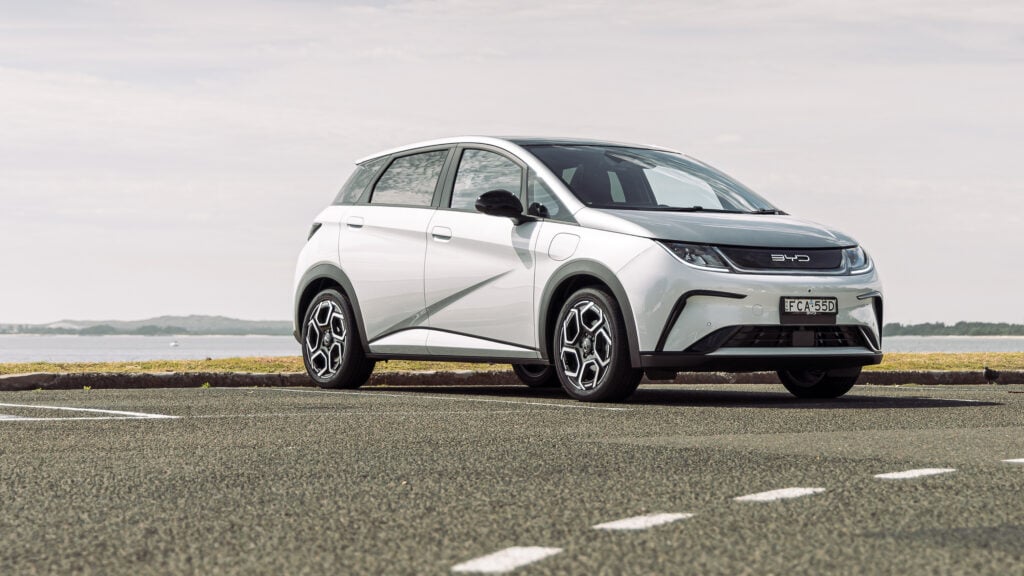The global car industry is facing a production crisis due to the shortage of semiconductor chips, which are needed in just about every electronic device on the planet. It’s wreaking havoc on vehicle supply chains, leading to instances like the thousands of new Ford F-Series pick-ups parked in limbo at Kentucky Speedway, almost complete but missing crucial electronic components.
New cars can require thousands of these chips, but when COVID-19 outbreaks shut down automotive factories in 2020, carmakers cancelled semiconductor chip orders expecting not to need them. The tech industry, fuelled by a shift towards home life, absorbed that chip supply. Lockdowns ended, and the demand for cars skyrocketed, but there were far too few chips to meet it.

Globally, the car industry has suffered to the tune of more than €90b (A$141b) according to research firm AlixPartners.
In Australia, the local industry is feeling the effects of overseas delays, and waiting times for some vehicles have ballooned to many months as demand for new cars has increased in the wake of global lockdowns lifting.
Wheels understands the situation to be more severe than many insiders will admit. Behind the scenes, industry experts say companies are battening down the hatches for a lag in vehicle deliveries well into 2022, anticipating the effects will likely be felt even through 2023.
Nissan, for example, has reported a record annual loss of more than 150 billion yen, or almost A$1.8b, due to the pandemic and chip shortage. The company has had to suspend production at three plants in Mexico, and many other brands have responded in a similar way, including recently formed group Stellantis. Ford is estimated to be operating at 50 percent capacity globally. Its European plants are producing cars like Transit, Fiesta and Puma at far reduced rates.
New cars require thousands of chips, but when COVID-19 shut down automotive factories, carmakers cancelled their orders. But lockdowns ended, and the demand for cars skyrocketed.
But locally, companies are maintaining their brands are able to handle what might come, telling Wheels this is a challenge, not a disaster. While Australia’s geographical isolation means accessing products from overseas can take more time, brands here are used to planning ahead.
Toyota Australia’s sales VP Sean Hanley recently announced that the brand is less affected by the shortage than others, however a spokesperson told Wheels that “Demand for new vehicles, globally and in Australia, is recovering much faster than anticipated just a few months ago. Although our plants are increasing capacity, we are anticipating that wait times for high-demand models will be longer than usual in the coming months.”
Things aren’t looking as good for Hyundai, which is starting to become more affected by the shortage. As global delays for some models are estimated to be up to 11 months, Hyundai Australia’s PR boss Bill Thomas told Wheels they are in constant contact with Seoul to ensure dealers and customers remain up to date on the situation.
“Looking at the next couple of months, our stock pipeline is restricted, but not dramatically so. We don’t know how things might change as we progress through the year.”
Vehicles from Europe and North America are the most heavily impacted, according to Ford spokesperson Ben Nightingale, meaning Ranger customers should be in the clear for the very near future at least.
“The delays vary by vehicle and plant, and our teams are working closely with their overseas colleagues for regular updates and to mitigate the impact.”
All three company representatives say their dealer networks are able to keep customers informed regarding specific orders, but carmakers are all hesitant to say how long, and how badly, supply will be affected.
The global supply of semiconductor chips is incredibly difficult to increase quickly, with electronics companies like Japan’s Hitachi only just now being able to commence upgrading its capacity to manufacture chips in the US, a task it estimates won’t be complete until August 2022. The US will also see the government pour US$50 billion into “restoring American leadership in semiconductor manufacturing,” though this funding rollout won’t be complete until 2026. In Asia and Europe, similar endeavours are being made to improve availability.
For now, some premium car manufacturers have even removed the availability for optional top-tier comfort and advanced safety tech due to the shortage.
The problem isn’t going away, and it seems set to get worse before it gets better. Earlier this year, the same firm that calculated the €90b figure estimated 2021’s global vehicle output would be down by about 2.2 million. That estimation has since been revised to closer to four million.
What is a semiconductor chip and why do modern cars need it?
It’s a set of electronic circuits built on a wafer of the semiconductor material silicon. Chips or integrated circuits (ICs) can range from a simple circuit to a micro-computer. They allow the design of circuits many, many times smaller, more powerful and less costly than if they were built from individual electronic components, and make all the complex and powerful electronic systems in today’s cars possible.





